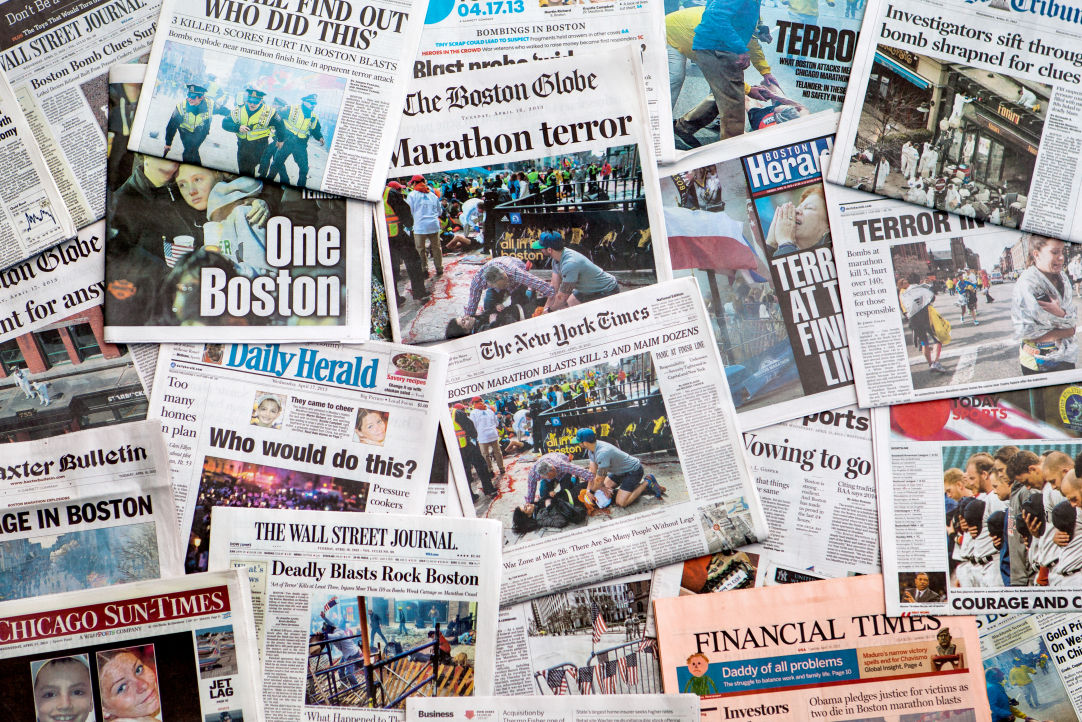How to Read the News During the Coronavirus Outbreak

Navigating the 24-hour news cycle with a critical eye is important regardless of whether one is currently in a crisis situation or not. However, extreme circumstances make careful news consumption all the more important. Especially when an abundance of information and the convenience of mobile technology makes any reader not only a consumer but a producer and distributor of mass media as well.
As the old joke goes, a running colonel incites laughter in times of peace and panic in times of war. If we remember that information is the main weapon of today, then news ranks no lower than the colonel from this old joke. And we should take it just as seriously as we would a high-ranking officer.
It is very easy to give in to panic. Like when we see the twentieth story about how stores have run out of toilet paper, buckwheat, and shower gel with juniper extract. Or when we catch ‘second-year-med-student’ syndrome and see yet another description of the virus online and become convinced that the disease is already here. Or when we read a tragic piece about a disaster in a different city on a different continent and immediately imagine in great detail how the same thing will happen on the next street over.
It is believed that in times of crisis, the amount of news increases. This is both true and false: the volume of information regarding the most relevant and sought-after consumer product increases—in this case, the COVID-19 pandemic. However, this news supplants other, less significant news that would otherwise have received much more attention. One crisis topic takes up as many places as three or four pre-crisis ones. Accordingly, the amount of unverified, not fully verified, and simply false news increases.
How do I navigate the overflow of information? Here is a list of the dos and don’ts from the HSE Institute of Communication Management:
- Get your news only from credible sources — those that have been tested by time and experience. Trust between the media consumer and an information source take a long time to develop. A crisis provides an opportunity to test the strength and accuracy of your preferred news sources. Even if your news source makes a mistake or publishes a story later than others, it is still better than randomly looking for new channels of information. After the crisis, one can correlate the reliability of their usual news sources with reality and, possibly, draw conclusions.
- Do not unnecessarily expand your range of interests with regard to the current topic. Approach the informational overflow with your own personal priorities in mind. If you want to know about personal safety and the safety of your family, look for news from trusted sources on this topic, and let others worry about shortages of essential products in Northern California. If you are worried about the prospects of a particular industry, then watch for information about this, and don’t get distracted by the blog about the benefits of garlic seasonings and shaving your beard. The amount of information that you can properly absorb and process is limited; don’t increase your informational intake unnecessarily.
- When resorting to unverified sources of information, try to establish to what extent they are accurate. If a telegram channel two months ago called the coronavirus a hoax or foreign propaganda, and a month ago it claimed that it would not reach Russia, then you probably should not use the channel as a news source. The people working for that channel likely do not have a firm grasp of the material they are working with. If another source compares the current pandemic to the plague of the 14th century, then the authors are prone to sensationalism, and their work should be approached with caution.
- Try to follow official messages, even if ordinarily you do not think to check these sources. It is better to learn about new quarantine measures from the original source than secondary ones.
In general, a light informational diet can even be beneficial. And as for whether to share or not share an unverified or not fully verified news piece — that is up you and your conscience.
This text was prepared by the Media Practices Centre of the HSE Institute of Communication Management

